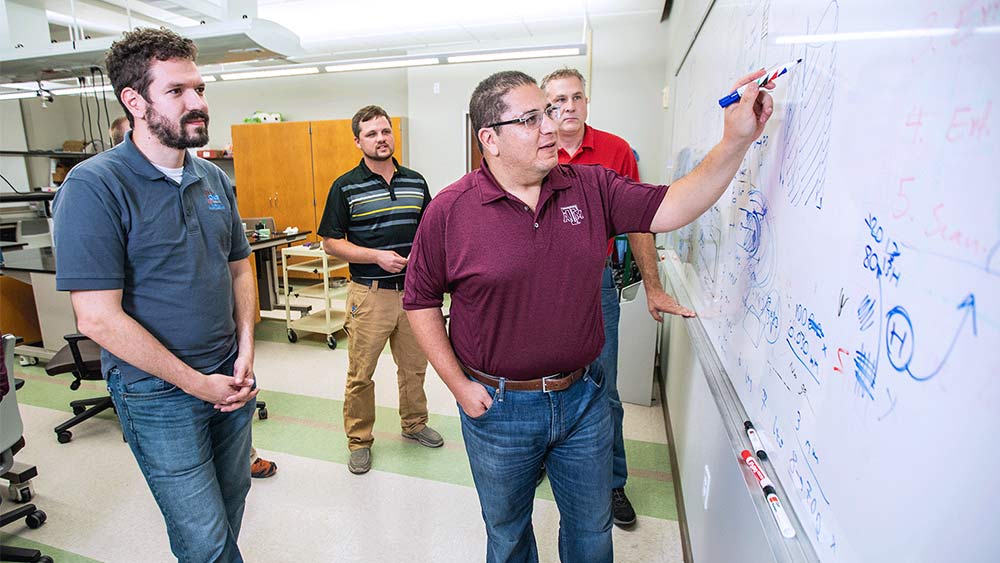
Additive manufacturing (also known as 3D printing) evolved to an $11.86 billion industry in 2019 and is predicted to grow to a $47.7 billion industry by 2025.
Meanwhile, the additive manufacturing workforce is not keeping up with current needs and opportunities. To respond to this talent gap and realize the full potential of additive manufacturing, TEES leaders have partnered with EOS to develop this Additive Manufacturing Certificate Program.
TEES EDGE works with Additive Minds — the EOS applied engineering team — to offer an expert-led modular certificate program to meet industry needs. The program can be offered in-person with a hands-on training component, or in remote synchronous online format with real-world case studies and group activities.

The modular format of the certificate program allows participants to select specific topics that cater to their training needs. The program modules cover the following Technical Content:
- Additive manufacturing fundamentals
- Product and process design (including design for additive manufacturing)
- Additive manufacturing materials
- Quality and cost considerations
Participants who complete all modules will earn an Additive Manufacturing Certificate and 4.0 CEUs/40 PDHs. Alternatively when needed, the TEES and EOS team can work with organizations that have an enough number of participants to enroll and customize a program with a sub-set of modules.
The cost of the certificate program is $5,995. Cost for a customized version of the program will be determined based on delivery format (in-person vs online) and the topics selected. In-person offerings are held on the Texas A&M University campus in College Station. Continental breakfast and lunch are provided. Transportation and lodging are not included.
"The bulk of today’s practicing engineers are trained solely on the basis of subtractive manufacturing. The design for manufacturing playbook is being rewritten, due to advancements in additive manufacturing, allowing engineers to imagine and build products that were previously impossible. To remain relevant, there is need for a wave of current and future engineers to be versed on these ’new rules.’" --
Greg Powers, vice president of technology at Halliburton
